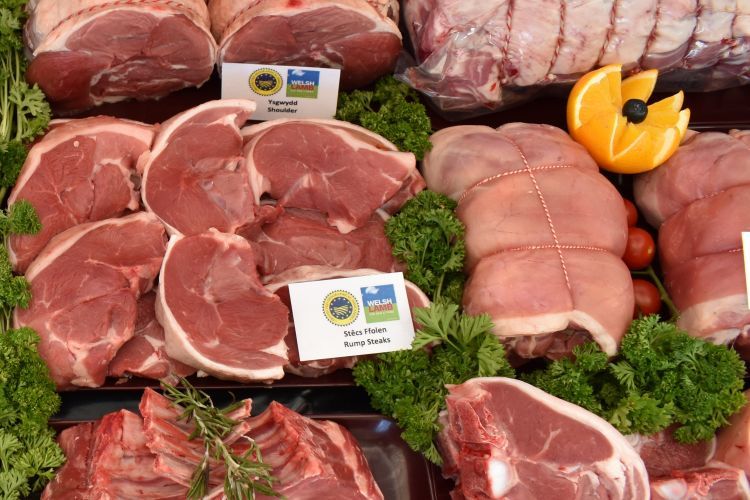
Consumer taste panels conducted have resulted in attendees increasing the amount of lamb they cook and eat and an increased awareness of the PGI Welsh Lamb brand.
Hybu Cig Cymru – Meat Promotion Wales (HCC) Welsh Lamb Meat Quality Project, part Welsh government funded, has been holding consumer taste panels over the last 3 years across the UK.
Consumer feedback has been collected on factors which impact meat quality and taste in order to ensure that Welsh Lamb retains its reputation for world-leading quality.
Data from taste panels held in Ludlow, Chester and Reading, shows that 60% of participants are purchasing more lamb after taking part in the taste panel.
Furthermore, 81% of participants had an increased understanding of Welsh Lamb’s nutritional benefits and 60% noted that they were now looking out for the Welsh Lamb logos after taking part in the consumer taste panel. 50% of participants had bought Welsh Lamb following the taste panel.
During the panel, participants are given seven servings of lamb and are asked to score it on the four key factors which make up meat quality: aroma, flavour, tenderness and juiciness, as well as overall liking. Panellists are also asked about how much they would be willing to pay for each piece.
Participants are also given a presentation highlighting the nutritional profile of Welsh Lamb and the sustainable way in which it is produced.
HCC is collecting feedback from 2,000 consumers over the lifespan of the project to create a blueprint for the industry on consumer preference.
HCC’s Meat Quality Executive, Dr Eleri Thomas said: "These results show that our taste panel research is not only beneficial to the industry but is also a really positive experience for consumers.
"Attending the taste panel has increased participants understanding and awareness of Welsh Lamb and their likelihood of buying it and purchasing it, which is a great result."
The feedback received by HCC is anonymous, but included comments such as "the panel was really interesting and the meat was divine".
One said: "Lamb is now my new chicken and I have it hot in recipes and cold with salad’ as well as ‘I thought I didn’t like lamb and I was educated in how delicious it can be!’
The results also showed that after attending a taste panel, 60% of participants were more likely to choose a lamb dish when eating out and over 55% of participants were more likely to cook lamb as a mid-week meal – a key meal occasion which HCC has been targeting to increase lamb consumption.
Dr Thomas continued: "The Welsh Lamb Meat Quality project offers a great opportunity to engage with 2,000 consumers across all parts of the UK and to highlight to them the unique and special qualities of Welsh Lamb.
"It is great that these events have resulted in more people cooking, choosing and purchasing Welsh Lamb."
HCC is now running its fourth and final set of taste panels, taking place in Liverpool, Oxford and Malvern.
Throughout the last 5 years, the project has been investigating what impact factors such as seasonality, feed and ageing process have on meat quality and consumer preference.
A final report will be created at the end of the project so the industry can take on board the results.
